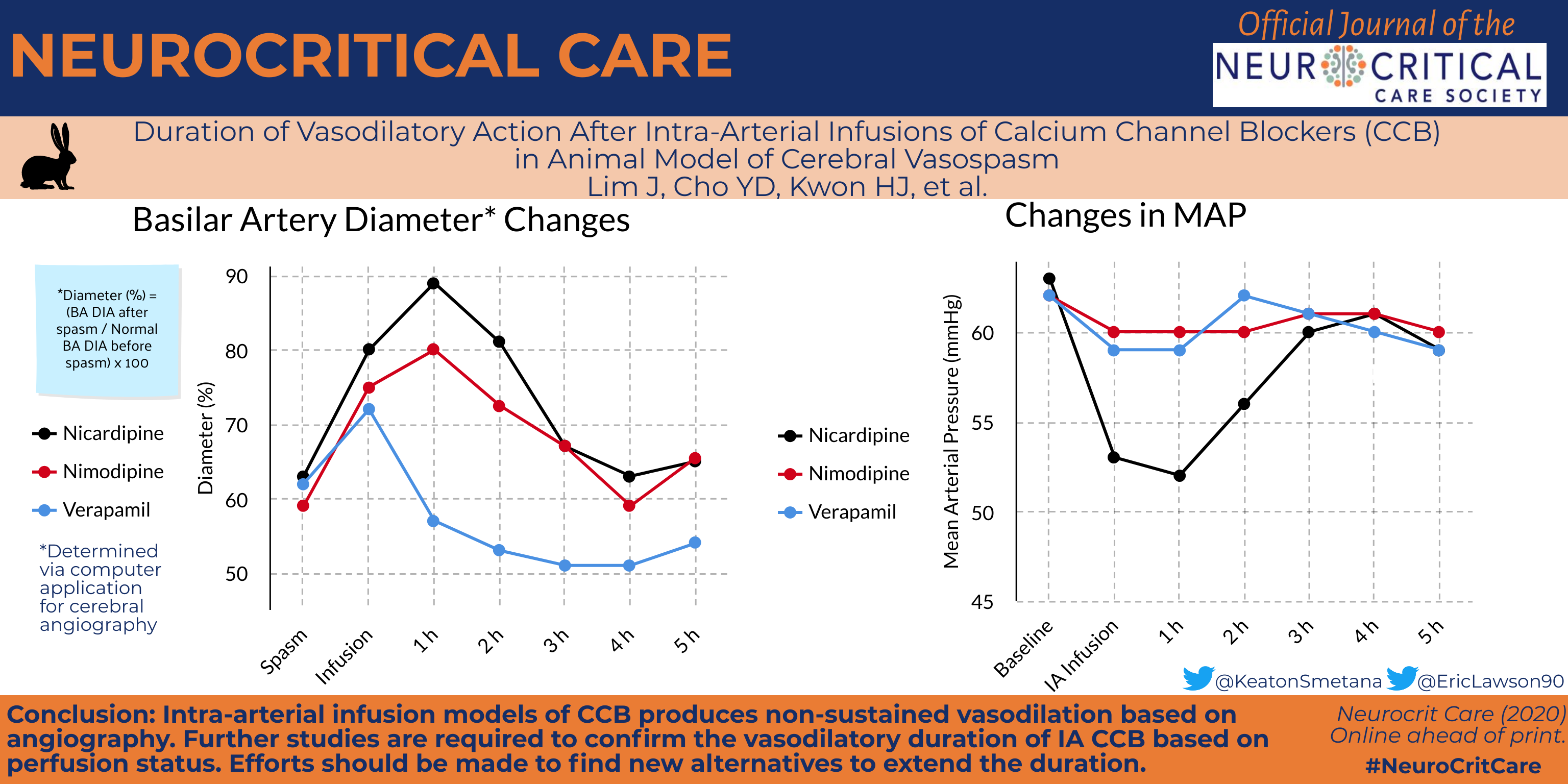By: Jeongwook Lim, Young Dae Cho, Hyon-Jo Kwon, Soo Hyoung Byoun, Hyeon-Song Koh, Bumsoo Park & Seung-Won Choi
Published: 25 September 2020
Background

In medically refractory vasospasm, invasive intervention may be required. A commonly used approach is intra-arterial (IA) drug infusion. Although calcium channel blockers (CCBs) have been widely applied in this setting, studies comparing their efficacies and durations of action have been few. This study was performed to compare attributes of three CCBs (nicardipine, nimodipine, and verapamil), focusing on duration of the vasodilatory action based on angiography.
Methods
Vasospasm was produced in New Zealand white rabbits (N = 22) through experimentally induced subarachnoid hemorrhage and confirmed in each via conventional angiography, grouping them by IA-infused drug. After chemoangioplasty, angiography was performed hourly for 5 h to compare dilated and vasospastic arterial diameters. Drug efficacy, duration of action, and changes in mean arterial pressure (relative to baseline) were analyzed by group.
Read the full abstract.